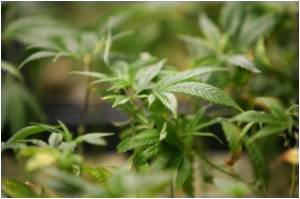Marijuana consumption, cultivation and trade may become legal in California -a first- with the people getting ready to vote on the issue.

Proposition 19 -- one of a series of referendums held on November 2 -- would allow people aged 21 and over to possess up to one ounce (28 grams) of marijuana and grow up to 25 square feet (2.32 square meter) of pot plants.
Large-scale commercial cultivation -- and its taxation -- could also go forward, though implementing such a rule would be left to the discretion of local municipal and county authorities.
"Prop 19 would effectively leapfrog California over the Netherlands," said Drug Policy Alliance chief Ethan Nadelmann, referring to relaxed Dutch enforcement of marijuana laws.
"It would make California the leading political jurisdiction in the world in terms of legal regulation of marijuana," said Nadelmann, whose group is campaigning for the legalization of marijuana.
Prop 19 supporters include a broad range of politicians, unions and rights groups -- as well as billionaire philanthropist George Soros, who backed the "Yes" campaign with a million dollars of his own money.
Advertisement
Nadelmann, however, cautioned the measure "won't instantly provide major billions in revenue or instantly put Mexican drug cartels out of business.
Advertisement
Despite the support, a recent opinion poll showed the no vote ahead by 49 percent to 44 percent -- an unexpected blow for the Yes campaign, which has led surveys for months.
Opponents include all the main candidates to succeed California Governor Arnold Schwarzenegger and for the state's two Senate seat races, as well as US Attorney General Eric Holder.
The proposal has also drawn international criticism.
Last week, 10 Latin American countries meeting in Colombia voiced their concern, saying the United States could not at the same time "promote penalizing this kind of activity in other countries and authorize the legalization... of drug production on their own territory."
US authorities have warned a yes vote could greatly complicate their war on drugs.
But proponents argue that legalizing marijuana could throw a spanner in a very lucrative market for Mexican drug traffickers, who are fighting a brutal drug war for control of trafficking routes into the United States that has claimed over 28,000 lives in nearly four years.
Nadelmann was cautious about the chances of Prop 19 being approved Tuesday.
"The public opinion polling makes me feel pessimistic. But there are a few things that make me feel positive about it," he said.
He noted that even if his campaign loses the vote, the push to legalize marijuana is further ahead now than in recent years and a majority of voters supported the move in California.
US federal statistics show nearly seven percent of the state's 37-million strong population smoke cannabis at least once a month.
If Prop 19 is rejected, "it would be because some of the people who support legalizing marijuana are still nervous about this specific initiative, nervous about how the federal government will respond," Nadelmann added.
"There's a real legitimization of the debate around marijuana policy unlike anything we've seen before."
Source-AFP











